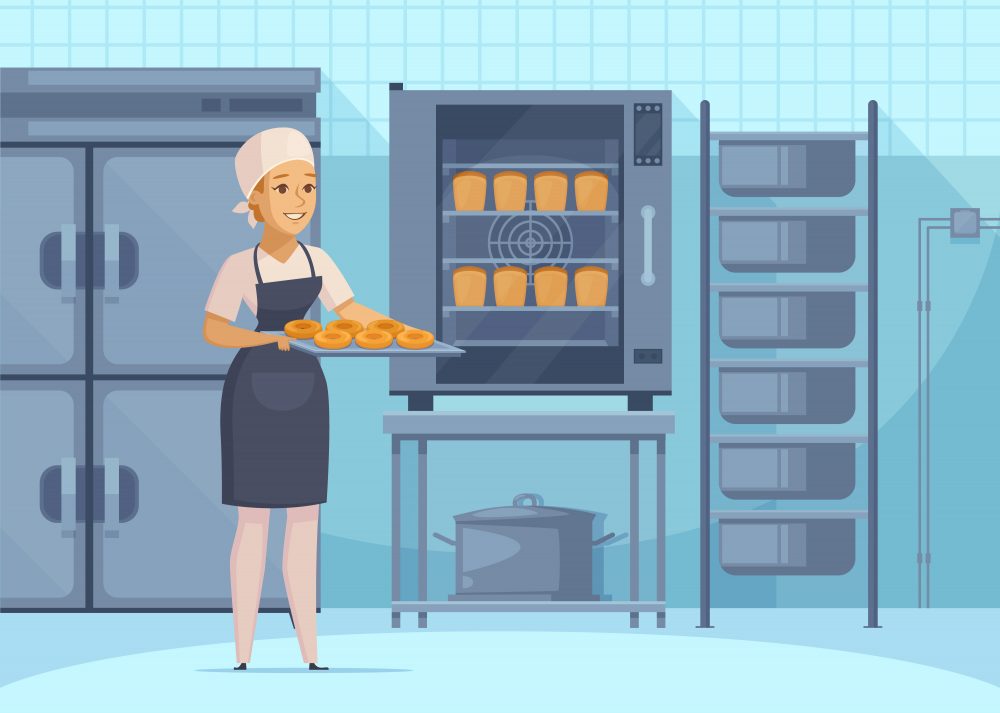Last month when Greggs posted its first pre-tax loss since 1984, when it was first listed on the London Stock Exchange, it probably thought that things couldn’t get any worse.
Because this pre-tax loss of £65.2 million for the six month period to June 27 was as a direct result of the closure of their shops during the covid-19 lockdown that resulted in a like-for-like fall in sales of a massive 49%. This is evidenced by the like-for-like increased level of sales in the same six moth period last year that generated a reported pre-tax profit of £36.7 million. So because the period of enforced closure covered most of Greggs’ second trading quarter, the impact was significant.
So how could things get worse when the period of statutory lockdown has ended and its retail shops are back up and running? There are two reasons.
The first is the impact of covid-19 and the lockdown on consumer behaviour. We have all seen the pictures and read the reports of empty streets and stations around commuter cities and towns. And because this is where many of Greggs’ retail bakery stores are located, there is still uncertainty as to when or indeed whether the level of last year’s sales will return. Only time will tell.
The second is that covid-19 has hit its distribution depot in Leeds with a round 20 of its staff there testing positive for the virus. And whilst other facilities can pick up the slack caused, the result is that Greggs’ shares have fallen by nearly two per cent.
Pre-pandemic, Greggs had aspirational development plans, building on their historical consistency of generating pre-tax profits. How will these be affected? Like all other businesses, there is no historical data on the impact of a national lockdown on which to base risk. So because of this uncertainty the future is unpredictable for everyone, including Greggs.





Thank you for your sharing. I am worried that I lack creative ideas. It is your article that makes me full of hope. Thank you. But, I have a question, can you help me?
Thanks for sharing. I read many of your blog posts, cool, your blog is very good.
alo 789 dang nh?p: alo789 – alo 789
https://mexicanpharminter.shop/# reliable mexican pharmacies
pharmacy com canada
https://mexicanpharminter.com/# mexican pharmacy online order
MexicanPharmInter MexicanPharmInter mexican pharmacy online order
http://indiamedfast.com/# online pharmacy india
canadian pharmacy meds reviews
http://mexicanpharminter.com/# mexican pharmacy online order
http://interpharmonline.com/# onlinecanadianpharmacy 24
the canadian drugstore
buying from online mexican pharmacy buying from online mexican pharmacy Mexican Pharm International
http://interpharmonline.com/# canada drug pharmacy
canadian drug pharmacy
canadian pharmacy ratings: fda approved canadian online pharmacies – vipps canadian pharmacy
northern pharmacy canada: online canadian pharmacy no prescription – canada pharmacy online legit
Mexican Pharm Inter reliable mexican pharmacies Mexican Pharm International
https://interpharmonline.shop/# legitimate canadian mail order pharmacy
my canadian pharmacy rx
canadian pharmacy phone number: canadian drugstore online no prescription – canadapharmacyonline legit
canadian pharmacy india: InterPharmOnline.com – canadian pharmacy victoza
https://interpharmonline.com/# the canadian drugstore
canada drugs online
https://indiamedfast.com/# India Med Fast
canadian pharmacy world: online canadian pharmacy no prescription – trustworthy canadian pharmacy
http://mexicanpharminter.com/# Mexican Pharm Inter
canada drug pharmacy
http://mexicanpharminter.com/# mexican pharmacy online store
canadian drug: Pharmacies in Canada that ship to the US – canadian pharmacy india
https://interpharmonline.com/# canadian pharmacy sarasota
canada drug pharmacy
Tadalafil Easy Buy TadalafilEasyBuy.com Cialis 20mg price in USA
https://generic100mgeasy.com/# Generic100mgEasy
TadalafilEasyBuy.com: cialis without a doctor prescription – TadalafilEasyBuy.com
https://kamagrakopen.pro/# Kamagra Kopen Online
Generic 100mg Easy Generic100mgEasy Generic100mgEasy
TadalafilEasyBuy.com: cialis without a doctor prescription – Buy Tadalafil 10mg
https://kamagrakopen.pro/# Kamagra Kopen Online
https://generic100mgeasy.com/# buy generic 100mg viagra online
buy generic 100mg viagra online buy generic 100mg viagra online Generic100mgEasy
https://kamagrakopen.pro/# KamagraKopen.pro
Tadalafil Easy Buy: Tadalafil Easy Buy – TadalafilEasyBuy.com
https://tadalafileasybuy.shop/# Tadalafil Easy Buy
Generic100mgEasy Generic 100mg Easy buy generic 100mg viagra online
https://tadalafileasybuy.com/# cialis without a doctor prescription
http://tadalafileasybuy.com/# TadalafilEasyBuy.com
kamagra 100mg kopen: Officiele Kamagra van Nederland – Kamagra
https://generic100mgeasy.com/# Generic 100mg Easy
https://generic100mgeasy.shop/# Viagra tablet online
cialis without a doctor prescription Buy Tadalafil 5mg TadalafilEasyBuy.com
http://generic100mgeasy.com/# Generic100mgEasy
Officiele Kamagra van Nederland: Kamagra Kopen – KamagraKopen.pro
https://kamagrakopen.pro/# Officiele Kamagra van Nederland
Generic100mgEasy: Generic 100mg Easy – Generic 100mg Easy
https://kamagrakopen.pro/# Kamagra Kopen Online
Generic100mgEasy Generic 100mg Easy buy generic 100mg viagra online
https://kamagrakopen.pro/# Officiele Kamagra van Nederland
https://kamagrakopen.pro/# kamagra 100mg kopen
https://tadalafileasybuy.shop/# cialis without a doctor prescription
Tadalafil Easy Buy Tadalafil Easy Buy cialis without a doctor prescription
https://generic100mgeasy.shop/# buy generic 100mg viagra online
пин ап казино официальный сайт – пин ап казино официальный сайт
pinup 2025 – пинап казино
пинап казино: https://pinupkz.life/
пинап казино – пинап казино
пин ап казино – пин ап вход
пин ап зеркало: https://pinupkz.life/
KamagraKopen.pro kamagra jelly kopen kamagra pillen kopen
пин ап казино зеркало – пинап казино
pinup 2025 – пин ап вход
пинап казино – пин ап
пин ап – пин ап зеркало
Tadalafil Easy Buy Buy Tadalafil 5mg Tadalafil Easy Buy
пин ап казино – пин ап
пин ап казино – пин ап вход
пин ап – пинап казино
Kamagra Kopen kamagra jelly kopen Officiele Kamagra van Nederland
пин ап казино: https://pinupkz.life/
пин ап – пинап казино
пин ап казино – пин ап
пин ап казино официальный сайт – пин ап зеркало
пинап казино: https://pinupkz.life/
пин ап вход – пин ап
buy generic 100mg viagra online over the counter sildenafil Generic 100mg Easy
Kamagra Gel: Kamagra online bestellen – Kamagra Oral Jelly
de online drogist kortingscode: ApotheekMax – Online apotheek Nederland met recept
Apotheek online bestellen Online apotheek Nederland zonder recept Online apotheek Nederland zonder recept
apotek online: apotek online recept – Apoteket online
Beste online drogist: Betrouwbare online apotheek zonder recept – Online apotheek Nederland met recept
online apotheek de online drogist kortingscode online apotheek
http://apotekonlinerecept.com/# Apotek hemleverans recept
Betrouwbare online apotheek zonder recept: Beste online drogist – online apotheek
https://kamagrapotenzmittel.com/# kamagra
http://apotekonlinerecept.com/# apotek online
apotek pa nett: apotek online – apotek pa nett
Apotek hemleverans recept Apoteket online apotek online
Kamagra Oral Jelly: kamagra – Kamagra kaufen
http://kamagrapotenzmittel.com/# kamagra
kamagra: Kamagra Gel – Kamagra Oral Jelly kaufen
Kamagra Gel: kamagra – Kamagra kaufen ohne Rezept
Kamagra Oral Jelly kaufen Kamagra Gel Kamagra kaufen
https://kamagrapotenzmittel.com/# kamagra
Kamagra kaufen: Kamagra Original – Kamagra online bestellen
https://kamagrapotenzmittel.shop/# Kamagra Gel
apotek online recept: apotek pa nett – Apotek hemleverans recept
Apoteket online: Apotek hemleverans recept – apotek online recept
https://kamagrapotenzmittel.shop/# Kamagra Oral Jelly kaufen
Apotek hemleverans recept: Apoteket online – Apotek hemleverans idag
Kamagra kaufen ohne Rezept: Kamagra kaufen – Kamagra online bestellen
Kamagra Oral Jelly kamagra Kamagra kaufen
Apotek hemleverans idag: apotek pa nett – Apotek hemleverans idag
https://apotheekmax.com/# Online apotheek Nederland met recept
Kamagra online bestellen: Kamagra Oral Jelly kaufen – Kamagra online bestellen
Apotheek online bestellen: de online drogist kortingscode – Apotheek online bestellen
https://apotekonlinerecept.shop/# apotek online recept
Kamagra Oral Jelly kamagra Kamagra Gel
https://apotekonlinerecept.com/# apotek pa nett
http://gocanadapharm.com/# canadian pharmacy 1 internet online drugstore
Agb Mexico Pharm: buying from online mexican pharmacy – Agb Mexico Pharm
Online medicine order: online pharmacy india – www india pharm
Agb Mexico Pharm Agb Mexico Pharm Agb Mexico Pharm
п»їbest mexican online pharmacies: Agb Mexico Pharm – п»їbest mexican online pharmacies
Agb Mexico Pharm: reputable mexican pharmacies online – reputable mexican pharmacies online
canada drugs reviews go canada pharm canadian pharmacy drugs online
best canadian pharmacy to order from: go canada pharm – reliable canadian pharmacy reviews
https://gocanadapharm.shop/# reputable canadian online pharmacy
reputable canadian pharmacy: GoCanadaPharm – legitimate canadian mail order pharmacy
purple pharmacy mexico price list: Agb Mexico Pharm – mexican border pharmacies shipping to usa
п»їlegitimate online pharmacies india www india pharm www india pharm
canada discount pharmacy: GoCanadaPharm – vipps canadian pharmacy
canada drug pharmacy: GoCanadaPharm – canadian pharmacy no rx needed
https://gocanadapharm.com/# reliable canadian pharmacy
best canadian online pharmacy: onlinepharmaciescanada com – northwest canadian pharmacy
canada pharmacy go canada pharm canadian pharmacy in canada
rate canadian pharmacies: canadian pharmacy ltd – online canadian pharmacy
https://agbmexicopharm.shop/# Agb Mexico Pharm
purple pharmacy mexico price list: Agb Mexico Pharm – Agb Mexico Pharm
drugs from canada: go canada pharm – canadian pharmacy 365
http://wwwindiapharm.com/# www india pharm
Agb Mexico Pharm buying prescription drugs in mexico Agb Mexico Pharm
pharmacies in mexico that ship to usa: Agb Mexico Pharm – buying from online mexican pharmacy
adderall canadian pharmacy: reputable canadian online pharmacies – canadian medications
http://gocanadapharm.com/# prescription drugs canada buy online
canada drugs online: GoCanadaPharm – canadianpharmacy com
Agb Mexico Pharm: Agb Mexico Pharm – mexican pharmaceuticals online
top 10 pharmacies in india www india pharm www india pharm
zithromax capsules australia: ZithPharmOnline – buy azithromycin zithromax
zestril 40: Lisin Express – Lisin Express
Pred Pharm Net prednisone prescription drug where can i buy prednisone online without a prescription
amoxicillin 500mg cost: where can i get amoxicillin 500 mg – AmOnlinePharm
Lisin Express: lisinopril brand name in india – Lisin Express
Pred Pharm Net prednisone for cheap Pred Pharm Net
prednisone acetate: can i buy prednisone online without a prescription – Pred Pharm Net
ZithPharmOnline: zithromax without prescription – how much is zithromax 250 mg
AmOnlinePharm amoxicillin 500 mg price amoxicillin 500mg capsules uk
ZithPharmOnline: zithromax pill – can you buy zithromax online
lisinopril 5 mg brand name in india: lisinopril 20 mg mexico – Lisin Express
zithromax purchase online: buy zithromax online with mastercard – where can i get zithromax
how to buy clomid no prescription: Clom Fast Pharm – where can i buy clomid
amoxicillin 500 mg tablets AmOnlinePharm price of amoxicillin without insurance
https://clomfastpharm.shop/# cost cheap clomid without insurance
can i buy clomid without a prescription: Clom Fast Pharm – cost of cheap clomid tablets
Clom Fast Pharm: Clom Fast Pharm – cost generic clomid without insurance
https://predpharmnet.shop/# ordering prednisone
how can i order prednisone: Pred Pharm Net – Pred Pharm Net
Pred Pharm Net Pred Pharm Net prednisone price south africa
generic clomid pills: get clomid now – Clom Fast Pharm
https://zithpharmonline.com/# zithromax over the counter canada
AmOnlinePharm: how to buy amoxicillin online – amoxicillin 500 mg for sale
Clom Fast Pharm: generic clomid without insurance – Clom Fast Pharm
https://amonlinepharm.shop/# AmOnlinePharm
can you buy amoxicillin over the counter: AmOnlinePharm – amoxicillin 500mg price
zithromax 500 mg zithromax coupon ZithPharmOnline
gГјvenilir casino: casibom giris – siteler bahis casibom1st.com
casino Еџans oyunlarД±: casibom guncel giris – casino bonus casibom1st.com
sweet bonanza yorumlar sweet bonanza yorumlar sweet bonanza giris sweetbonanza1st.com
deneme bonusu veren siteler: orisbet – deneme bonusu veren siteler casinositeleri1st.com
sweet bonanza 1st: sweet bonanza siteleri – sweet bonanza giris sweetbonanza1st.shop
en gГјvenilir site: casibom mobil giris – gГјvenilir casino casibom1st.com
en iyi bet siteleri: casibom 1st – canlД± bahis oyunlarД± casibom1st.com
sweet bonanza 1st sweet bonanza 1st sweet bonanza sweetbonanza1st.com
guvenilir casino siteleri: lisansl? casino siteleri – casino siteleri casinositeleri1st.com
sweet bonanza demo: sweet bonanza slot – sweet bonanza oyna sweetbonanza1st.shop
sweet bonanza slot: sweet bonanza yorumlar – sweet bonanza siteleri sweetbonanza1st.shop
casino siteleri guvenilir bahis siteleri deneme bonusu veren siteler casinositeleri1st.shop
slot casino siteleri: vidobet giriЕџ – casino siteleri casinositeleri1st.com
sweet bonanza: sweet bonanza oyna – sweet bonanza giris sweetbonanza1st.shop
guvenilir casino siteleri: casino siteleri – casino siteleri casinositeleri1st.com
glГјcksspiel internet casibom guncel adres casinombet casibom1st.shop
https://casibom1st.com/# gГјvenilir bahis siteleri
casinoda en Г§ok kazandД±ran oyun: casibom mobil giris – internet kumar siteleri casibom1st.com
2025 deneme bonusu veren bahis siteleri: casibom giris – casino turkey casibom1st.com
sweet bonanza demo: sweet bonanza 1st – sweet bonanza demo sweetbonanza1st.shop
sweet bonanza demo sweet bonanza 1st sweet bonanza slot sweetbonanza1st.com
levante casino: casibom 1st – vidobet casibom1st.com
deneme bonusu veren bet siteleri: casibom mobil giris – yeni siteler bahis casibom1st.com
http://sweetbonanza1st.com/# sweet bonanza oyna
sweet bonanza siteleri: sweet bonanza 1st – sweet bonanza giris sweetbonanza1st.shop
sweet bonanza 1st: sweet bonanza giris – sweet bonanza siteleri sweetbonanza1st.shop
spor siteleri listesi casibom guncel giris tl casino casibom1st.shop
sweet bonanza demo: sweet bonanza slot – sweet bonanza slot sweetbonanza1st.shop
casino siteleri 2025: casino siteleri 2025 – deneme bonusu veren siteler casinositeleri1st.com
UsMex Pharm UsMex Pharm usa mexico pharmacy
https://usmexpharm.shop/# USMexPharm
USMexPharm: USMexPharm – USMexPharm
mexican rx online: certified Mexican pharmacy – Us Mex Pharm
usa mexico pharmacy mexican pharmacy USMexPharm
http://usmexpharm.com/# Us Mex Pharm
mexican pharmacy: certified Mexican pharmacy – mexican pharmacy
mexican pharmacy: certified Mexican pharmacy – usa mexico pharmacy
Us Mex Pharm: certified Mexican pharmacy – mexican pharmacy
mexican online pharmacies prescription drugs usa mexico pharmacy mexican pharmacy
UsMex Pharm: usa mexico pharmacy – Us Mex Pharm
https://usmexpharm.com/# mexican pharmacy
UsMex Pharm: UsMex Pharm – Mexican pharmacy ship to USA
UsMex Pharm: USMexPharm – usa mexico pharmacy
http://usmexpharm.com/# UsMex Pharm
Us Mex Pharm Us Mex Pharm Mexican pharmacy ship to USA
USMexPharm: Us Mex Pharm – buying prescription drugs in mexico
certified Mexican pharmacy: USMexPharm – mexico drug stores pharmacies
https://usmexpharm.shop/# Us Mex Pharm
USMexPharm certified Mexican pharmacy Us Mex Pharm
USMexPharm: USMexPharm – Us Mex Pharm
https://usmexpharm.com/# certified Mexican pharmacy
top 10 pharmacies in india: Online medicine order – UsaIndiaPharm
UsaIndiaPharm: UsaIndiaPharm – USA India Pharm
online pharmacy india buy medicines online in india USA India Pharm
indian pharmacy paypal: USA India Pharm – indian pharmacy
best online pharmacy india: cheapest online pharmacy india – UsaIndiaPharm
UsaIndiaPharm: UsaIndiaPharm – UsaIndiaPharm
https://usaindiapharm.com/# Online medicine home delivery
USA India Pharm best online pharmacy india USA India Pharm
top online pharmacy india: UsaIndiaPharm – USA India Pharm
Online medicine home delivery: USA India Pharm – indian pharmacy paypal
top 10 pharmacies in india indianpharmacy com UsaIndiaPharm
UsaIndiaPharm: USA India Pharm – pharmacy website india
USA India Pharm: buy medicines online in india – USA India Pharm
https://usaindiapharm.shop/# USA India Pharm
UsaIndiaPharm: buy prescription drugs from india – india pharmacy mail order
india online pharmacy indian pharmacy paypal UsaIndiaPharm
USA India Pharm: mail order pharmacy india – pharmacy website india
USA India Pharm: UsaIndiaPharm – USA India Pharm
india pharmacy mail order: buy medicines online in india – п»їlegitimate online pharmacies india
https://usaindiapharm.com/# UsaIndiaPharm
reputable indian pharmacies USA India Pharm india pharmacy mail order
I’m really inspired with your writing talents and also with the format in your blog. Is this a paid subject or did you modify it yourself? Either way stay up the nice high quality writing, it’s rare to peer a nice blog like this one today!
USA India Pharm: indian pharmacy paypal – USA India Pharm
http://usaindiapharm.com/# best online pharmacy india
indian pharmacy online: top online pharmacy india – world pharmacy india
USA India Pharm Online medicine order indianpharmacy com
Online medicine order: UsaIndiaPharm – USA India Pharm
USA India Pharm: buy medicines online in india – indian pharmacy online
Online medicine order: UsaIndiaPharm – top online pharmacy india
http://usaindiapharm.com/# indian pharmacy
best india pharmacy indianpharmacy com UsaIndiaPharm
the canadian pharmacy: canadianpharmacy com – USACanadaPharm
USACanadaPharm: legit canadian pharmacy – canadian pharmacy sarasota
canada drugs online usa canada pharm canadapharmacyonline legit
canadian online drugs: USACanadaPharm – USACanadaPharm
usa canada pharm: online canadian drugstore – USACanadaPharm
best canadian online pharmacy my canadian pharmacy reviews canadian pharmacy king reviews
USACanadaPharm: usa canada pharm – usa canada pharm
pharmacy wholesalers canada: USACanadaPharm – canadian pharmacy online reviews
https://usacanadapharm.shop/# usa canada pharm
canadian pharmacy antibiotics: canadian pharmacy 24 – safe canadian pharmacies
USACanadaPharm: canadian pharmacy world – canadian pharmacy 24 com
usa canada pharm USACanadaPharm canadian pharmacy online reviews
http://usacanadapharm.com/# usa canada pharm
usa canada pharm: usa canada pharm – usa canada pharm
http://usacanadapharm.com/# safe canadian pharmacy
escrow pharmacy canada legitimate canadian mail order pharmacy USACanadaPharm
USACanadaPharm: best canadian pharmacy online – USACanadaPharm
USACanadaPharm: usa canada pharm – canadian drugs online
https://usacanadapharm.shop/# canadian pharmacy ltd
trusted canadian pharmacy: canadian pharmacy ed medications – pharmacy in canada
canadian pharmacy world: USACanadaPharm – USACanadaPharm
https://usacanadapharm.com/# legit canadian pharmacy
usa canada pharm usa canada pharm USACanadaPharm
USACanadaPharm: canadian pharmacies online – canadian pharmacy no rx needed
usa canada pharm: reliable canadian pharmacy reviews – usa canada pharm
https://usacanadapharm.com/# my canadian pharmacy
canadian pharmacy near me: canadian pharmacy 24 – buying from canadian pharmacies
https://usacanadapharm.com/# usa canada pharm
USACanadaPharm: canadian online drugstore – best canadian pharmacy to buy from
USACanadaPharm: best canadian online pharmacy – cheap canadian pharmacy
canadian pharmacy world: canada pharmacy online – USACanadaPharm
casino olympe olympe casino en ligne
olympe casino cresus: olympe casino – olympe casino
olympe casino: olympe casino avis – olympe casino avis
olympe: casino olympe – olympe casino
casino olympe: olympe casino en ligne – olympe casino cresus
olympe casino cresus: olympe casino – casino olympe
olympe casino cresus olympe casino cresus
olympe casino cresus: olympe casino avis – olympe casino en ligne
olympe casino: casino olympe – olympe
olympe casino en ligne: olympe casino en ligne – olympe
casino olympe: olympe casino en ligne – olympe casino en ligne
olympe olympe
casino olympe: olympe casino cresus – casino olympe
olympe casino en ligne: olympe casino en ligne – olympe casino cresus
olympe casino: olympe casino en ligne – olympe casino
casino olympe: olympe casino cresus – olympe casino cresus
olympe casino avis olympe casino avis
olympe casino avis: casino olympe – olympe casino avis
olympe casino cresus olympe
olympe casino: olympe casino avis – olympe casino
olympe casino en ligne: olympe casino en ligne – olympe casino en ligne
olympe casino olympe casino en ligne
olympe casino en ligne olympe casino avis
casino olympe: olympe casino avis – olympe casino en ligne
olympe olympe casino en ligne
casino olympe: olympe casino en ligne – olympe
olympe casino: olympe casino en ligne – olympe
olympe casino cresus: olympe casino avis – olympe casino en ligne
olympe casino avis: olympe casino avis – olympe casino cresus
olympe: olympe casino en ligne – olympe casino cresus
olympe: olympe casino en ligne – olympe casino avis
olympe casino en ligne: olympe casino avis – olympe casino en ligne
kamagra oral jelly kamagra livraison 24h kamagra en ligne
Achat mГ©dicament en ligne fiable: pharmacie en ligne sans ordonnance – Pharmacie sans ordonnance pharmafst.com
cialis prix Achat Cialis en ligne fiable Tadalafil sans ordonnance en ligne tadalmed.com
Pharmacie en ligne livraison Europe: Livraison rapide – pharmacie en ligne france livraison belgique pharmafst.com
kamagra en ligne: kamagra pas cher – acheter kamagra site fiable